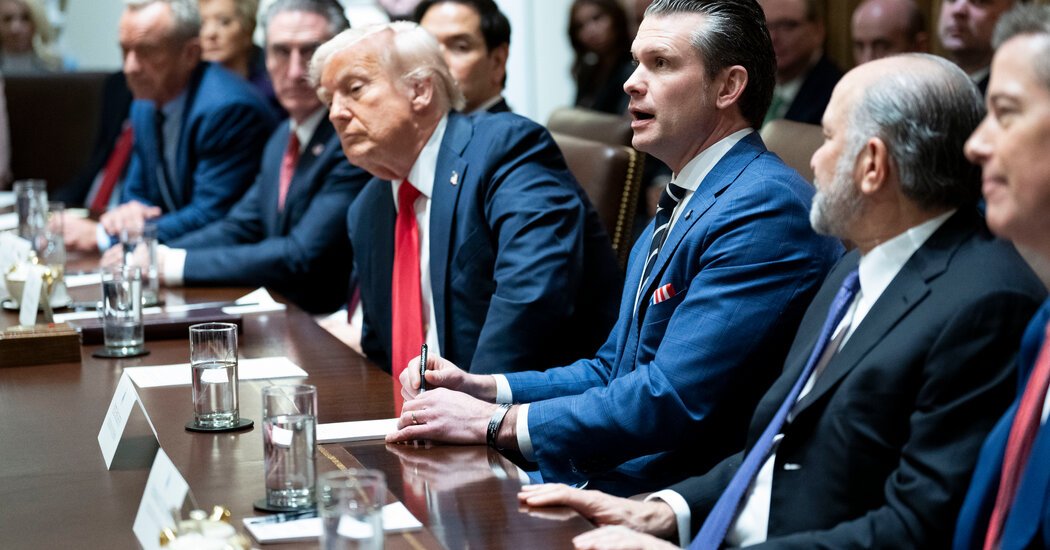“You’re not going to bring them to the table if you’re calling them names, if you’re being antagonistic,” Mr. Rubio said on ABC’s “This Week.” “That’s just the president’s instincts from years and years and years of putting together deals as someone who’s in business.”
Mr. Rubio was not asked about the decision to stop the offensive cyberoperations, but he grew defensive when pressed on why the United States was letting up on pressure on Moscow, to the point of removing language from a United Nations resolution that described Russia as the aggressor in the war in Ukraine. Almost all of the United States’ traditional allies voted against the resolution, leaving the Trump administration siding with Russia, North Korea, Iran and Belarus, and a handful of other authoritarian states.
“If this was a Democrat that was doing this, everyone would be saying, well, he’s on his way to the Nobel Peace Prize,” Mr. Rubio said. “This is absurd. We are trying to end a war. You cannot end a war unless both sides come to the table, starting with the Russians, and that is the point the president has made. And we have to do whatever we can to try to bring them to the table to see if it’s even possible.”
The order from Mr. Hegseth was first reported by The Record, a cybersecurity publication from Recorded Future, which tracks cyberoperations. The Pentagon and U.S. Cyber Command declined to comment on the record, but a senior defense official, declining to allow use of her name, said that Mr. Hegseth had “no greater priority” than the safety of military members, including in cyberoperations.
As the Trump administration prepared to take office, departing Biden administration officials urged Mr. Trump’s appointees to keep the pressure on Russia, including by continuing to arm Ukraine and push back on the GRU and the SVR, two Russian intelligence agencies that have been behind some of the most aggressive Russian cyberattacks and espionage operations.
